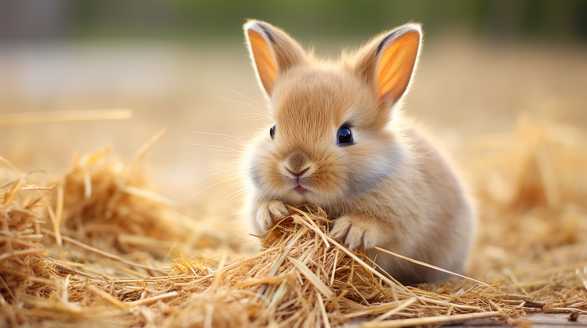Introduction
Hey there, fellow rabbit enthusiasts! Have I got an exciting topic for you today! Lets take a look at Timothy Hay for Rabbits
Timothy hay is not just any ordinary grass. Oh no, it’s a powerhouse of nutrition and a game-changer when it comes to your rabbit’s health.
But here’s the kicker – choosing the right Timothy hay can be a bit daunting. With so many options out there, you might find yourself overwhelmed.
we’ll look into the key factors to consider when selecting the best quality Timothy hay for your fluffy friend.
And that’s not all! We’ll also explore how to introduce Timothy hay into your rabbit’s diet, offering tips and tricks to make the transition smooth and enjoyable for both you and your bunny.
So, grab a carrot (or a cup of tea) and get ready for an exciting adventure into the world of Timothy hay. Trust me, by the end of this article, you’ll be equipped with the knowledge and tools to provide your rabbit with a diet that will keep them healthy, happy, and hopping with joy.
Let’s hop right in!
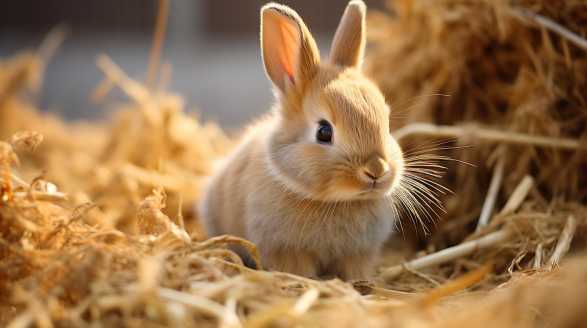
Key Takeaways
- Timothy hay is crucial for rabbits as it promotes healthy digestion, prevents obesity, and provides mental stimulation.
- Factors to consider when choosing Timothy hay include freshness, texture, leafiness, and nutritional analysis.
- It’s important to store Timothy hay properly to maintain its freshness and nutritional value.
- Introducing Timothy hay gradually and offering a variety of hay types can make it more appealing to rabbits.
- Timothy hay supports a rabbit’s immune system, dental health, and overall well-being.
- Common mistakes to avoid when feeding Timothy hay include using low-quality hay, not providing enough hay, and storing hay improperly.
- Timothy hay should be the foundation of a rabbit’s diet, supplemented with fresh vegetables and high-quality pellets.
- Maintaining a balanced diet, observing your rabbit’s preferences, and monitoring hay intake are crucial for their health.
How Much Timothy Hay Should You Feed Your Rabbits?
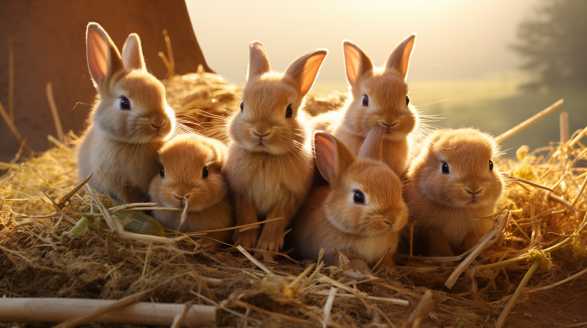
As a proud rabbit owner, one of the key responsibilities is ensuring your furry friend has a well-balanced and nutritious diet. Among the various food options available, Timothy hay stands out as an essential component.
Why is Timothy Hay Crucial for Rabbits?
Timothy hay is not just any ordinary hay; it plays a crucial role in your rabbit’s overall well-being. Here are a few reasons why Timothy hay should be a staple in their diet:
- Digestive Health: Rabbits have a unique digestive system that relies on a constant intake of fiber to keep it functioning optimally. Timothy hay, being high in fiber, aids in preventing gastrointestinal issues such as hairballs and stasis.
- Dental Care: Rabbits’ teeth continuously grow, and proper dental care is essential to prevent overgrowth. Chewing on Timothy hay helps wear down their teeth naturally, avoiding dental problems.
- Mental Stimulation: Rabbits are inquisitive creatures and need mental stimulation. Timothy hay can provide hours of entertainment and enrichment as they forage and explore the hay.
Now that we understand the importance of Timothy hay, let’s dive into the question of how much to feed your rabbits.
Factors to Consider
Before determining the exact quantity of Timothy hay, there are a few factors to consider:
- Age: The age of your rabbit affects their nutritional requirements. Younger rabbits need more hay to aid in their growth and development, while adult rabbits may require a slightly lesser amount.
- Activity Level: Active rabbits burn more calories and may need a larger quantity of Timothy hay compared to less active ones.
- Health Conditions: Rabbits with certain health conditions might have specific dietary needs. It’s always recommended to consult with a veterinarian to tailor the diet accordingly.
General Guidelines for Feeding Timothy Hay
Here are some general guidelines to keep in mind while feeding Timothy hay to your rabbits:
- Unlimited Access: Rabbits should have access to Timothy hay at all times. Unlike other food components, hay should never be restricted, allowing them to graze freely.
- Fresh and Dust-Free Timothy Hay: Ensure that the Timothy hay you offer is fresh and free from dust and mold. Low-quality hay can harm your rabbit’s health, so opt for hay that is green, fragrant, and of good quality.
- Balanced Diet: While Timothy hay is essential, it should not be the sole component of their diet. Rabbits require a diverse diet incorporating vegetables, pellets, and fresh water. Hay should account for around 75% of their overall diet.
How to Monitor Hay Consumption?
It’s vital to keep an eye on how much hay your rabbits are consuming. Monitoring their hay intake helps you gauge their appetite and overall health.
- Observing Hay Piles: Rabbits typically form small piles of hay in their enclosure. A good indicator of their hay consumption is the rate at which these piles disappear. Ensure that there is always an adequate supply of hay available.
- Hay Wastage: Rabbits might sometimes waste hay by tossing it around or soiling it. Cleaning their enclosure regularly can help minimize wastage and ensure they have access to clean hay.
Adjusting the Quantity
While some general guidelines exist, every rabbit is unique and might have different preferences or needs. Depending on your rabbit’s individual requirements, you can adjust the quantity of Timothy hay accordingly.
- Monitor Weight: Keep an eye on your rabbit’s weight and body condition. If they are gaining or losing weight rapidly, it may be an indication to adjust the hay quantity.
- Offer a Range: Initially, you can offer a varied amount of hay within the recommended range and observe your rabbit’s consumption pattern. Over time, you will be able to determine their preferred amount.
- Consult a Veterinarian: If you’re unsure about the appropriate quantity of Timothy hay for your rabbit, consult a veterinarian who can assess their specific needs and provide tailored advice.
Timothy hay is not just any food for rabbits; it is a vital component of their overall well-being. By providing unlimited access to fresh and high-quality Timothy hay, while considering factors like age and activity level, you can ensure your rabbits enjoy a healthy and balanced diet.
And with that, your furry friends will hop their way to a happy and satisfied life!
Tips for Storing Timothy Hay to Maintain Freshness for Your Rabbits
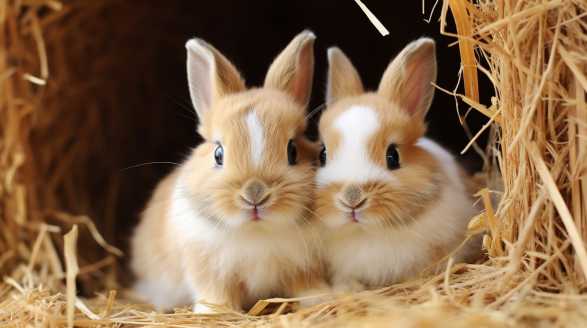
If you’re a rabbit owner like me, you understand the importance of providing fresh and nutritious food for your furry friends. Timothy hay is an essential part of a rabbit’s diet, providing them with high-fiber, low-calorie nourishment.
I’ll share some valuable tips and tricks for storing timothy hay to keep it fresh and tasty for your beloved bunnies.
Why is Fresh Timothy Hay Important for Rabbits?
Before we dive into the tips, let’s first understand why fresh timothy hay is vital for rabbits. Timothy hay is an excellent source of fiber, which aids in digestion, prevents hairballs, and keeps their teeth healthy.
Without proper storage, timothy hay can quickly lose its freshness and become moldy or stale. Rabbits are sensitive creatures, and feeding them hay of poor quality can lead to digestive issues and other health problems.
Tip 1: Choose the Right Storage Container
The type of container you use to store timothy hay plays a crucial role in maintaining its freshness. Opt for a well-sealed, airtight container that keeps moisture and pests at bay.
Tip 2: Store in a Cool and Dry Place
Hay can quickly degrade when exposed to heat or moisture. Therefore, it’s essential to store timothy hay in a cool and dry location.
The ideal storage temperature should be around 60-70°F (15-21°C) with humidity below 40%.
Tip 3: Keep Away from Direct Sunlight
Direct sunlight can cause timothy hay to become discolored and lose its nutritional value. Therefore, it’s crucial to protect the hay from prolonged exposure to sunlight.
Tip 4: Purchase in Small Quantities
Buying timothy hay in bulk may seem cost-effective, but it can compromise its freshness if you’re unable to use it up quickly. Consider purchasing hay in smaller quantities to ensure you have a fresh supply always on hand.
Tip 5: Rotate Your Hay Supply
Just like any perishable item, timothy hay has a shelf life. To ensure that you’re always providing fresh hay to your rabbits, practice proper rotation.
By doing so, you avoid accidentally using hay that has lost its freshness.
Tip 6: Remove Excess Moisture
Even if you store your hay in a dry location, there’s always a chance of excess moisture infiltrating the storage container. To prevent this, consider using moisture-absorbing packets or a few handfuls of uncooked rice in the container.
Tip 7: Avoid Contact with the Ground
Keeping timothy hay off the ground is essential to prevent contamination and maintain its freshness. Moisture and pests can easily seep into hay if it’s in contact with the floor.
Tip 8: Regularly Inspect for Mold or Dust
To ensure the health of your rabbits, it’s crucial to inspect the stored hay regularly. Moldy or dusty hay can be harmful and should never be fed to your rabbits.
If you notice any of these, discard the hay immediately and clean the container thoroughly before refilling.
Tip 9: Consider Vacuum Sealing
For maximum freshness and longer shelf life, some rabbit owners choose to vacuum seal their hay. This method removes all the air from the storage bag or container, greatly reducing the chance of spoilage.
Tip 10: Observe Your Rabbits’ Eating Habits
Lastly, keep a close eye on your rabbits’ eating habits. If you notice them avoiding the hay or eating less than usual, it could be a sign that the hay has gone bad.
Always strive to provide them with the best quality hay to promote their optimal health and well-being.
Remember, maintaining fresh timothy hay for your rabbits not only ensures their nutritional needs are met but also contributes to their overall happiness. By following these simple storage tips, you can provide your beloved bunnies with hay that is not only tasty but also packed with essential nutrients.
How to Introduce Timothy Hay to Young Rabbits: A Beginner’s Guide
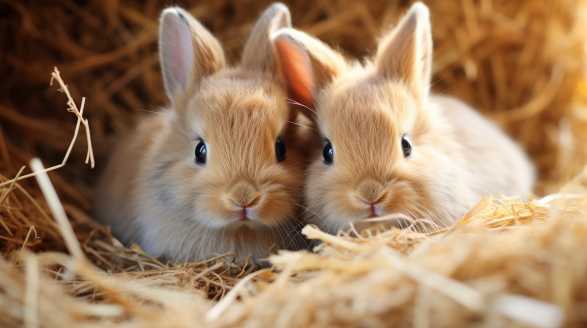
A Bunny’s Nutritional Journey Begins
Ah, the joys of adopting a young rabbit! As a new rabbit owner, I couldn’t wait to embark on this fluffy adventure.
After some research, I discovered that Timothy hay plays a crucial role in a young rabbit’s nutrition. Allow me to guide you through the process of introducing this essential food to your bunny companion.
Why Timothy Hay?
1. Fiber-Rich Goodness
Timothy hay is a great source of fiber, which is vital for a rabbit’s digestive system. It helps prevent health issues such as gastrointestinal stasis and keeps their teeth in check.
2. Essential Chewing Exercise
Chewing on Timothy hay promotes proper tooth wear, ensuring your little bunny’s dental health remains in tiptop condition. It keeps their ever-growing teeth filed down naturally!
3. Optimal Nourishment
Young rabbits require a diet rich in essential nutrients to support their growth and development. Timothy hay is an excellent source of vitamins, minerals, and proteins that contribute to their overall well-being.
Step-by-Step Guide to Introduce Timothy Hay
1. Choose High-Quality Timothy Hay
The journey begins with selecting the right type of Timothy hay for your young rabbit. Opt for fresh, green, and leafy strands.
Young rabbits, like humans, may take some time to adapt to new foods. It’s crucial to introduce Timothy hay gradually to allow their digestive system to adjust.
3. Variety is the Spice of Hay
Don’t Settle for Just Timothy
While Timothy hay is a staple, it’s always a good idea to introduce a variety of hays to keep your young rabbit interested and engaged. Consider offerings such as orchard grass, oat hay, or meadow hay as well.
4. Hay Placement Matters
Placing Timothy hay in the correct location can make a world of difference. You want to ensure it is easily accessible and in an area where your young rabbit feels safe and comfortable.
5. Persistence Pays Off
Buns can be quite fussy when it comes to new foods. Don’t be discouraged if your little bundle of fluff initially ignores or nibbles on only a few strands of Timothy hay.
6. Make it Interactive
Hay Hunt for Bunnies
To make the introduction of Timothy hay more exciting, add a playful twist! Hide small bundles of hay around your young rabbit’s play area.
7. Freshness Matters
Rabbits, just like us, appreciate fresh and flavorful food. Ensure you replenish the hay frequently to prevent it from becoming stale or unappetizing.
8. Observe and Adapt
Your Bunny’s Preference is Key
Every bunny has unique preferences, so it’s essential to observe and adapt accordingly. Pay attention to how your young rabbit interacts with the Timothy hay.
Adjust the presentation to suit their preferences.
9. Social Eating
Rabbits are naturally social animals, so why not make hay-eating a bonding experience? Spend quality time with your young bunny while they munch on their Timothy hay.
10. Health Benefits All Around
Remember, Timothy hay isn’t just a treat for your young rabbit, but also a necessary component of their overall health. The fiber-rich goodness not only aids digestion but also helps prevent potential health issues.
A Journey Towards a Happy, Hay-Loving Rabbit
Introducing Timothy hay to your young rabbit may seem like a daunting task at first, but with patience, persistence, and a touch of creativity, you can make it an exciting part of their daily routine. By prioritizing their nutritional needs and creating a positive association with hay, you’re laying the foundation for a happy, hay-loving rabbit that will bring you endless joy and companionship.
The Role of Timothy Hay in Preventing Dental Problems in Rabbits
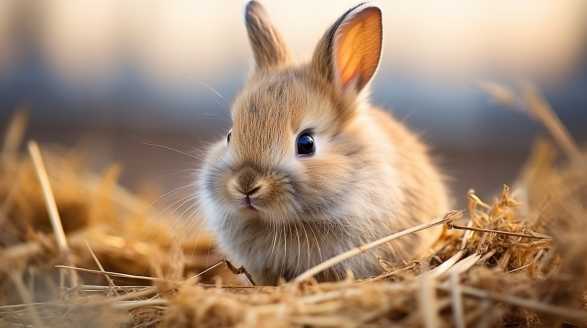
As a proud rabbit owner, I have always strived to provide the best care for my furry friends. One crucial aspect of rabbit care that often gets overlooked is the importance of Timothy hay in preventing dental problems.
Why Dental Problems are a Concern for Rabbits?
Dental issues can be a significant cause of discomfort and pain for rabbits. Unlike humans, rabbits’ teeth grow continuously throughout their lives.
However, if not properly regulated, it can lead to various dental problems.
The Role of Timothy Hay in Dental Health
Timothy hay, derived from the perennial grass known as Timothy grass, plays a vital role in maintaining optimal dental health for rabbits. The key benefits of Timothy hay include:
1. Natural Dental Wear
When rabbits chew on Timothy hay, the fibrous strands act as a natural toothbrush, helping to grind down their continuously growing teeth. The rough texture of Timothy hay helps scrub off any excess tartar or plaque buildup, reducing the risk of dental problems.
2. Adequate Tooth Alignment
Rabbits need to have their teeth correctly aligned to facilitate efficient chewing. The act of chewing on Timothy hay requires them to use both their incisors and back teeth.
3. Promotes Saliva Production
Timothy hay has a high fiber content, which stimulates saliva production in rabbits. Saliva helps to keep the mouth moist and aids in digestion.
4. Prevents Overgrown Teeth
One of the most severe dental problems in rabbits is overgrown teeth. Overgrown teeth can cause pain, difficulty eating, and even weight loss.
To Timothy Hay or Not to Timothy Hay – That is the Question
Now that we understand the importance of Timothy hay in maintaining dental health in rabbits, let’s address the question of quantity. How much Timothy hay should you provide to your furry companion?
Rabbits should have access to Timothy hay at all times. It should make up a significant portion of their diet, ideally constituting around 80% of their daily food intake.
To ensure the freshest and highest quality Timothy hay for your rabbit, consider the following tips:
Selecting the Perfect Timothy Hay
When purchasing Timothy hay, keep these factors in mind to ensure optimal quality:
1. Freshness:
Choose Timothy hay that is green, fragrant, and free from mold or dust. Fresh Timothy hay will have the most nutritional value for your rabbit.
2. Fiber Content:
Check the fiber content on the package. Aim for Timothy hay with a fiber content of at least 30%, as this will provide the necessary dental benefits.
3. Harvesting Technique:
Look for Timothy hay that has been harvested at the peak of its growth. This ensures the optimal balance of nutrients for your rabbit’s dental health.
Strategies for Encouraging Timothy Hay Consumption
While Timothy hay is essential, some rabbits may need some encouragement to consume it. Here are a few tactics to ensure your furry friend gets the dental benefits of Timothy hay:
1. Mix it Up:
Offer a variety of Timothy hay types, such as first cut and second cut, to provide different flavors and textures. This can entice picky eaters to give it a try.
2. Hide Treats:
Hide small treats or pellets within the Timothy hay to encourage your rabbit’s foraging instincts. This will inevitably lead to more consumption of Timothy hay.
3. Create Hay Toys:
Consider purchasing or making hay toys for your rabbit. These toys often have hidden compartments where you can stuff Timothy hay, making it an interactive and enjoyable way for your rabbit to access the hay.
The Verdict: Timothy Hay, the Dental Savior for Rabbits
Timothy hay plays a pivotal role in maintaining dental health in rabbits. Its natural dental wear properties, ability to align teeth, and promotion of saliva production make it an essential component of a rabbit’s diet.
So, don’t wait any longer – hop on board the Timothy hay train and give your beloved bunny the gift of optimal dental health!
The Importance of Timothy Hay in a Rabbit’s Diet
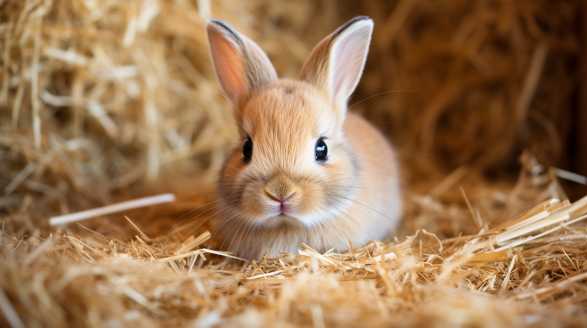
As a rabbit owner, I have always been fascinated by the various types of food that are crucial for their well-being. One particular staple that I cannot stress enough is timothy hay.
I will look into why timothy hay is so important and why your furry friend simply cannot do without it.
A Nutritional Powerhouse
First and foremost, timothy hay is rich in essential nutrients that rabbits need to thrive. Here are some of the key nutrients found in this wonder food:
- Fiber: Rabbits are herbivores, and their digestive systems are specifically designed to process high amounts of fiber. Timothy hay is packed with fiber, which aids in maintaining a healthy gut and preventing digestive issues such as bloating and diarrhea.
- Protein: While rabbits primarily need fiber, they also require a certain amount of protein for muscle development and overall growth. Timothy hay contains a decent amount of protein to meet these needs.
- Calcium: Calcium is essential for maintaining strong bones and teeth. Rabbits, especially young ones, need an adequate amount of calcium in their diet to support their growing bodies. Timothy hay is an excellent source of calcium, making it a vital component of their daily meals.
- Vitamin C: Similar to humans, rabbits cannot produce vitamin C on their own. Therefore, they must obtain it from their diet. Timothy hay is naturally high in vitamin C, contributing to your rabbit’s overall immune health and preventing diseases like scurvy.
Dental Health Benefits
Another significant advantage of incorporating timothy hay into your rabbit’s diet is its positive impact on their dental health. Rabbits’ teeth never stop growing, and they need to constantly chew on fibrous materials to wear them down naturally.
Preventing Obesity
It’s no secret that some rabbits have a tendency to overindulge in food, leading to weight gain and obesity. This can lead to a whole host of health issues, including arthritis, heart disease, and diabetes.
Its high fiber content makes rabbits feel full and satisfied, preventing excessive eating and aiding in weight management.
Mental Stimulation
Rabbits are intelligent creatures that require mental stimulation to stay happy and healthy. Timothy hay serves as an excellent source of enrichment for your furry friend.
Rabbits love to dig, burrow, and nibble on fresh hay, providing hours of entertainment and preventing boredom.
Choosing the Best Timothy Hay
When it comes to selecting timothy hay for your rabbit, there are a few things to consider. Here are some tips to find the best quality hay:
- Look for fresh and green hay: Freshness is crucial when it comes to hay. Avoid hay that is discolored, dusty, or has a musty smell. Fresh and green hay indicates that it is of good quality.
- Opt for first-cut timothy hay: First-cut timothy hay is harvested early in the season and tends to be more leafy. This means it contains a higher amount of necessary nutrients and is generally more appealing to rabbits.
- Avoid hay with additives: Some timothy hay products may contain additives like coloring or flavoring agents. It is best to avoid these, as they can be harmful to your rabbit’s health.
Incorporating Timothy Hay into Your Rabbit’s Diet
Now that we understand the importance of timothy hay, let’s discuss how to incorporate it into your rabbit’s diet effectively:
- Provide unlimited access to hay: Rabbits should have access to hay 24/7. Ensure a constant supply of fresh hay and replace it when it becomes soiled or depleted.
- Mix it up: While timothy hay should form the basis of their diet, it’s essential to offer your rabbit a variety of hays, such as alfalfa hay or orchard grass, to keep their meals interesting and diverse.
- Supplementary feeding: Alongside hay, rabbits should also receive a small amount of fresh vegetables, high-quality pellets, and clean water daily. Remember that hay should make up the majority of their diet.
- Presentation matters: To keep your rabbit engaged, try providing hay in different ways. Place it in a hay rack, stuff it in toys, or scatter it around their enclosure to encourage foraging and mimic their natural behaviors.
Timothy hay is not just any ordinary grass; it is a vital component of a rabbit’s diet. From its nutritional benefits to its positive impact on dental health and mental stimulation, timothy hay plays a pivotal role in keeping your furry friend healthy and happy.
So, let’s not underestimate the power of timothy hay and make it an integral part of our furry friend’s well-balanced diet.
Understanding the Nutritional Value of Timothy Hay for Rabbits
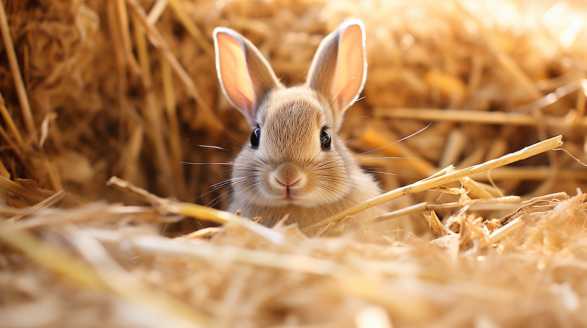
As a rabbit owner, I’ve spent countless hours researching the best diet for my furry friend. One food that consistently pops up in every search is Timothy hay.
Let’s dive into the world of Timothy hay and uncover its nutritional value for rabbits.
What is Timothy Hay?
The Origins of Timothy Hay
Timothy hay, scientifically known as Phleum pratense, is a type of grass native to Europe and Asia. It was named after a prominent American farmer, Timothy Hanson.
Harvesting Timothy Hay
Timothy hay is typically harvested when it reaches the late-vegetative to early-flowering stage, ensuring optimal nutritional content. The hay is then dried in the sun, preserving its nutritional value.
Nutritional Composition of Timothy Hay
Essential Fibers
Timothy hay is rich in dietary fiber, which is crucial for a rabbit’s digestive health. The high fiber content helps maintain proper gut motility and prevents various gastrointestinal problems.
Protein and Amino Acids
While not as high in protein as other grasses, Timothy hay still provides essential amino acids necessary for your rabbit’s growth and development.
Vitamins and Minerals
Timothy hay is an excellent source of vitamins and minerals such as vitamin A, vitamin E, calcium, and phosphorus. These elements are vital for maintaining healthy bones, vision, and immune function in rabbits.
Low Calcium Content
One unique aspect of Timothy hay is its relatively low calcium content compared to other hays. This aspect is especially important for rabbits at risk of developing urinary tract issues, as an excess of calcium can contribute to stone formation.
The Benefits of Timothy Hay for Rabbits
Dental Health
Rabbits’ teeth are continuously growing, and the act of chewing Timothy hay helps wear down their teeth naturally. This constant chewing also prevents dental problems such as overgrown teeth or malocclusion.
Digestive Health
The high fiber content in Timothy hay promotes healthy digestion in rabbits. It helps prevent the formation of hairballs and gastrointestinal stasis, a potentially life-threatening condition in rabbits.
Mental Stimulation
Providing Timothy hay to your rabbit encourages natural foraging behaviors, keeping them mentally stimulated and happy. It also helps prevent boredom, reducing the likelihood of destructive behavior.
Weight Management
The high fiber and low-calorie content of Timothy hay make it an ideal choice for overweight rabbits. It helps them feel full without consuming excessive calories, aiding in weight management.
Choosing the Best Timothy Hay for Your Rabbit
First Cut Timothy Hay
First cut Timothy hay is harvested early in the season and has a higher stem-to-leaf ratio. This type of hay is generally recommended for younger rabbits or those with dental issues.
Second Cut Timothy Hay
The second cut Timothy hay is harvested later in the season, providing a leafier and softer texture. This hay is suitable for adult rabbits or those with no specific dietary restrictions.
Freshness and Quality
When selecting Timothy hay for your rabbit, ensure it is fresh, fragrant, and free from mold or dust. High-quality Timothy hay should have a vibrant green color and a slightly sweet smell.
Proper Storage
To maintain the nutritional value of Timothy hay, it’s essential to store it correctly. Keep it in a dry, well-ventilated area away from direct sunlight to prevent mold growth.
Incorporating Timothy Hay into Your Rabbit’s Diet
The Foundation of the Diet
Timothy hay should be the foundation of every rabbit’s diet. It should make up approximately 70-80% of their daily food intake.
Unlimited Access
Rabbits should have unlimited access to Timothy hay throughout the day. Fresh hay should be provided and replaced regularly to ensure its availability.
Supplementing with Pellets and Fresh Vegetables
While Timothy hay is crucial, rabbits also require additional nutrients. High-quality rabbit pellets and fresh vegetables, such as leafy greens, can complement their diet.
Introducing Young Rabbits to Timothy Hay
For young rabbits, introducing Timothy hay early is essential. Start by providing a small amount and gradually increase the quantity as they grow.
The Bottom Line
Understanding the nutritional value of Timothy hay for rabbits is an important aspect of providing a balanced diet to your furry companion. Its high fiber content, essential nutrients, and numerous health benefits make it an essential component of a rabbit’s daily food intake.
The Connection Between Timothy Hay and Good Immune Health in Rabbits
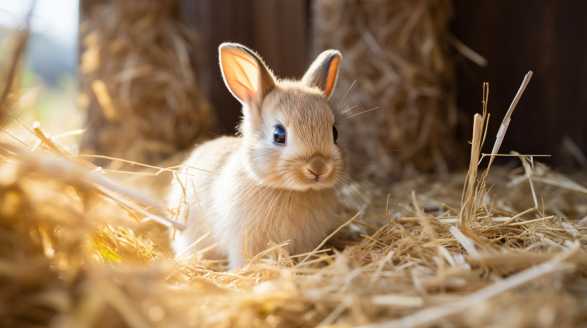
I have always been intrigued by the fascinating world of domestic rabbits. These adorable creatures are not only great companions but also have unique dietary needs.
One key element that continually stands out is the significant role that Timothy hay plays in promoting good immune health in rabbits. I will look into the exciting connection between Timothy hay and the immune system of our furry friends.
Why is the immune system important for rabbits?
Before diving into the wonders of Timothy hay, let’s take a moment to appreciate the importance of a robust immune system for rabbits. A strong immune system is essential for any living creature, including humans and animals alike.
Similarly, rabbits’ immune systems play a vital role in ensuring their overall well-being and longevity.
Understanding Timothy hay
Timothy hay, named after a farmer named Timothy Hanson in the early 18th century, is a type of grass hay commonly fed to rabbits. It is a staple in a rabbit’s diet due to its high nutritional value and fiber content.
The journey of Timothy hay through a rabbit’s digestive system
To understand the link between Timothy hay and immune health, let’s embark on a fascinating journey through a rabbit’s digestive system. When consumed, Timothy hay passes through various stages of digestion, each contributing to the well-being of our furry friends.
1. Chewing and grinding
Rabbits have a unique dental system where their teeth continuously grow throughout their lives. Chewing on Timothy hay helps keep their teeth trimmed down and prevents dental issues that can arise from overgrown teeth.
2. Fiber digestion in the cecum
Once chewed, Timothy hay enters the cecum, a specialized part of a rabbit’s digestive system. The cecum is like a fermentation vat, where bacteria break down the fiber into smaller particles through fermentation.
This bacterial balance, in turn, aids in the proper functioning of the immune system.
3. Absorption of essential nutrients
After the fermentation process in the cecum, the digested nutrients are absorbed in the small intestine. Timothy hay, being rich in fiber, enables the proper absorption of vital nutrients.
The immune-boosting properties of Timothy hay
High fiber content
Timothy hay is naturally high in fiber, making it an excellent addition to a rabbit’s diet. Fiber stimulates the digestive system, avoiding problems like gastrointestinal stasis, a condition where a rabbit’s gut slows down, potentially leading to severe complications.
Keeps the gut healthy
A healthy gut translates to a healthy immune system. The fiber in Timothy hay promotes regular bowel movements, preventing the buildup of harmful bacteria in a rabbit’s gut.
Rich in essential nutrients
Timothy hay is a nutritional powerhouse, containing a variety of vitamins, minerals, and antioxidants that contribute to maintaining a healthy immune system. It is particularly rich in vitamin C, a vital nutrient that supports a rabbit’s immune response.
The connection between Timothy hay and good immune health in rabbits is undeniably vital. By including Timothy hay in a rabbit’s diet, owners can help ensure their furry companions have a strong defense against potential illnesses.
So, let’s make Timothy hay a regular part of our bunnies’ lives and witness the wonders it can do for their overall well-being.
Common Mistakes to Avoid When Feeding Timothy Hay to Your Rabbits
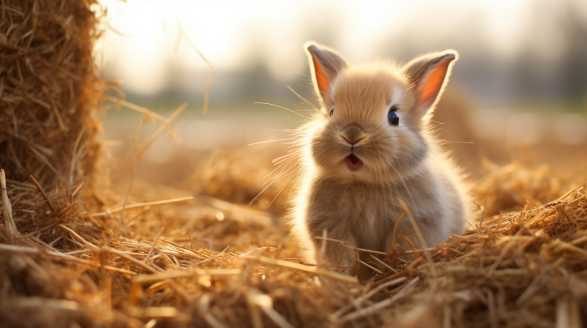
If you’re a rabbit owner, you probably know how crucial it is to provide your furry friends with a healthy and balanced diet. One staple food for rabbits that often comes to mind is timothy hay.
However, despite its numerous benefits, there are some common mistakes many rabbit owners make when feeding timothy hay. I will share some valuable insights and tips to help you avoid these mistakes and ensure your rabbits receive the full benefits of this fantastic forage option.
Lack of Fresh and High-Quality Timothy Hay
One crucial mistake many rabbit owners make is providing their pets with low-quality or old timothy hay. Rabbits thrive on fresh and green hay, packed with essential nutrients.
Look for timothy hay that is fragrant, green, and free from dust or mold. Avoid overly dry or brown hay, as it may lack the required nutritional value.
Insufficient Amount of Timothy Hay
Another common mistake is not providing enough timothy hay for your rabbits. Hay should be available to your bunnies at all times, as they need constant access to it to support their digestive system and maintain proper dental health.
Feeding Timothy Hay in Dirty or Wet Areas
Rabbits are clean animals, and just like us, they prefer to eat their food in a clean environment. Make sure you place the timothy hay in a clean and dry area, away from their litter box or anywhere that tends to get wet.
Storing Timothy Hay Improperly
Proper hay storage is crucial to maintain its freshness and nutritional value. Avoid storing your timothy hay in damp or humid areas, as this can lead to mold growth.
Additionally, it’s essential to regularly check your hay supply for signs of moisture or mold and discard any spoiled hay immediately.
Offering a Limited Variety of Hay
While timothy hay is an excellent choice for rabbits, it’s equally important to provide a variety of hay in their diet. Supplementing their timothy hay with other grass hays, such as meadow or orchard hay, can add diversity and provide additional nutrients to support overall well-being.
Ignoring Signs of Hay Allergies or Sensitivities
Some rabbits may have allergies or sensitivities to timothy hay. It’s essential to observe your pet closely after introducing timothy hay into their diet.
If you suspect an allergy, consult with a veterinarian to explore alternative hay options.
Failing to Rotate Timothy Hay
Timothy hay, like any other food, can lose its nutritional value over time. To ensure your rabbits receive the optimum benefits, it’s advisable to rotate your hay supply regularly.
Overfeeding Timothy Hay and Ignoring Balanced Diet
While timothy hay is a vital component of a rabbit’s diet, it should not be the sole food source. Overfeeding hay and neglecting other essential elements, such as fresh vegetables and the appropriate pellet feed, can lead to nutritional imbalances.
Not Monitoring Hay Intake
Being aware of how much hay your rabbit consumes is crucial to monitor their well-being. If you notice a sudden decrease in hay consumption or if your rabbit starts to lose weight, it may be an indication of an underlying health issue.
Skipping Hay-Based Toys and Enrichment Activities
Rabbits are intelligent and social animals that enjoy mental stimulation and engage in foraging behaviors. Providing hay-based toys, puzzles, or enrichment activities can keep your rabbits mentally active and prevent boredom.
Feeding timothy hay to your rabbits is essential for their overall health and well-being. By avoiding these common mistakes and following the tips mentioned above, you can ensure your furry friends enjoy the full benefits of this high-quality forage.
Pay attention to hay storage, observe your rabbits for any allergies or sensitivities, and maintain a balanced diet. With these considerations in mind, your rabbits will thrive on their nutritious and delicious timothy hay diet.
Why Timothy Hay Is Crucial for Rabbits
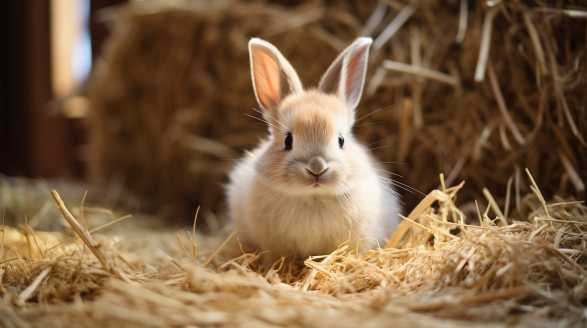
Before delving into the factors to consider while choosing the best Timothy hay for your rabbits, it’s crucial to understand why Timothy hay is so important for their well-being. Rabbits have a unique digestive system that requires a high-fiber diet, and Timothy hay fits the bill perfectly.
1. Promotes Healthy Digestion
One of the main benefits of Timothy hay is its high fiber content. The long, coarse strands of Timothy hay help wear down rabbits’ teeth, preventing them from becoming overgrown, which can lead to serious health issues.
2. Prevents Obesity
Just like humans, rabbits can struggle with weight issues. Feeding them a diet rich in Timothy hay helps prevent obesity by providing the essential roughage they need, while keeping their calorie intake in check.
3. Mental Stimulation
Rabbits are curious creatures, and foraging through a pile of Timothy hay not only keeps them physically engaged, but also stimulates their minds. It provides hours of entertainment and prevents boredom, which can lead to destructive behavior.
Factors to Consider When Choosing Timothy Hay
Now that we understand the significance of Timothy hay for rabbits, let’s look into the factors you should consider while choosing the best one for your furry friend.
1. Freshness
When it comes to Timothy hay, freshness is key. You want to ensure that the hay you choose is green, fragrant, and free from mold or dust.
Fresh Timothy hay provides optimal nutrition and is more enticing for your rabbits.
2. Texture
Rabbits have a natural instinct to nibble and chew, so choosing Timothy hay with a coarse texture is important. Long strands of hay not only mimic their natural foraging behavior but also assist in wearing down their teeth and promoting good dental health.
3. Leafiness
Leafy Timothy hay is an indicator of high quality. Look for hay that is predominantly green and consists of many long, intact leaves.
4. Nutritional Analysis
Not all Timothy hay is created equal. Different brands or batches of hay may vary in terms of nutrient content.
The ideal fiber content should be around 25-30%, while protein should range between 6-12%. Avoid hay with excessive calcium levels, as it can lead to urinary tract issues in rabbits.
5. Organic vs. Non-Organic
Choosing between organic and non-organic Timothy hay is a personal preference. Organic options are grown without the use of synthetic fertilizers or pesticides, making them a great choice for rabbits with sensitive digestive systems.
6. Hay Storage
Proper storage of Timothy hay is crucial to maintain its freshness and prevent mold or pests from ruining it. Ensure that the hay you purchase is stored in a cool, dry place, away from direct sunlight.
7. Brand Reputation
Choosing a reputable brand can provide peace of mind when it comes to the quality and consistency of Timothy hay. Look for brands that have positive reviews and a track record of satisfied customers.
8. Cost-Effectiveness
While quality is of utmost importance, it’s also essential to consider the cost of Timothy hay. Compare prices between different brands and suppliers, keeping in mind the quality and quantity offered.
9. Your Rabbit’s Preferences
In the end, your rabbit’s preferences and individual needs matter the most. Observe your rabbit’s behavior and preferences when it comes to hay.
Experiment with different types and brands to find what your rabbit enjoys the most.
Remember, providing an optimal diet for your rabbits is crucial for their overall health and well-being. Besides Timothy hay, ensure they have access to fresh water, a balanced pellet diet, and a variety of leafy greens and vegetables.
As rabbit lovers, it’s our responsibility to provide the best care possible for our furry friends. Choosing the best Timothy hay for your rabbits is a key element in their diet and overall happiness.
With the right Timothy hay, you’re well on your way to fostering a healthy and thriving environment for your beloved rabbits.
The Link Between Timothy Hay and Healthy Digestion in Rabbits

As a proud rabbit owner, I’ve always strived to provide my furry friend with the best nutrition possible. One crucial aspect of their diet that I’ve come to appreciate is Timothy hay.
I will take you on a journey where we uncover the fascinating link between Timothy hay and healthy digestion in rabbits.
The Marvels of Timothy Hay
Let’s start by unraveling the mysteries of Timothy hay. What makes it so special?
1. High in Fiber, Low in Calories
One of the key reasons Timothy hay is such a valuable component of a rabbit’s diet is its high fiber content. Fiber plays a crucial role in keeping their digestive system running smoothly.
2. Promotes Dental Health
Rabbits’ teeth continually grow, and to keep them in check, they need something to gnaw on. Timothy hay provides the perfect solution!
Plus, the chewing action encourages saliva production, which aids in the digestion process.
3. Promotes Proper Gut Motility
The fiber in Timothy hay also promotes proper gut motility in rabbits. It moves through their digestive system, keeping things flowing smoothly and preventing any potential blockages.
Choosing the Right Timothy Hay
Now that we understand the importance of Timothy hay, let’s explore how to choose the highest quality hay for our bouncy companions.
1. Look for Fresh, Green Stalks
When selecting Timothy hay, opt for bales or bags that contain fresh and green stalks. Yellow or brown hay indicates age or poor quality, so make sure you choose wisely.
2. Smell the Aroma
Believe it or not, the aroma of the hay can provide a clue about its quality. Good Timothy hay should have a fresh and sweet scent, akin to a summer meadow.
3. Avoid Dusty Hay
Dust can be problematic for rabbits, especially those with respiratory issues. Opt for hay that is free of dust or excessive debris.
Introducing Timothy Hay to Your Rabbit’s Diet
Now that we’ve covered the wonders of Timothy hay and how to choose the best quality, let’s discuss the best way to introduce it into your rabbit’s diet.
1. Gradual Transition
Like humans, rabbits might need time to adapt to new foods. Start by incorporating small amounts of Timothy hay into their regular diet.
This gradual transition will prevent any digestive upsets.
2. Variety is Key
While Timothy hay is essential, it’s important to offer a varied diet to our furry friends. Supplement their hay intake with fresh vegetables, high-quality rabbit pellets, and, of course, unlimited access to fresh water.
Signs of a Happy and Digestively Healthy Rabbit
Now that your bunny is munching on Timothy hay, it’s essential to recognize the signs of a happy and digestively healthy rabbit. Here are a few indicators that your furry friend is thriving:
1. Consistent and Well-Formed Droppings
Healthy rabbit droppings should be consistently shaped and firm. If you notice any sudden changes, such as diarrhea or extreme hardness, it may be necessary to adjust their diet or seek advice from a veterinarian.
2. Active and Energetic Behavior
A happy rabbit will be lively, curious, and active. If your bunny is hopping around, exploring their environment, and enjoying playtime, it’s a great indication that their digestive system is functioning well and they are in optimal health.
The link between Timothy hay and healthy digestion in rabbits is undeniable. By incorporating this delightful grass into their diet, you provide your rabbit with a fiber-rich, dental-friendly, and digestion-boosting treat.
With Timothy hay as their dietary superhero, your rabbit will enjoy a happy and healthy life full of bursting energy and bunny antics.
Conclusion
So there you have it, my fellow rabbit enthusiasts! Timothy hay is truly a superhero in the world of rabbit nutrition.
But remember, not all Timothy hay is created equal, so it’s important to choose the freshest, highest quality hay for your precious bunnies.
And let’s not forget about the proper storage of Timothy hay! It’s crucial to keep it in a cool, dry place, away from direct sunlight and moisture.
Now, introducing Timothy hay to your rabbit’s diet might take a little time and patience. Start slowly, mix it up with other hay varieties, and make it an interactive and fun experience.
And remember, Timothy hay should be the foundation of your rabbit’s diet, supplemented with fresh vegetables and high-quality pellets. It’s all about maintaining a balanced and nutritious menu to keep your fluffy companions hopping with joy.
So, my rabbit-loving friends, let’s hop into action and deliver the best for our furry friends. With Timothy hay as their ultimate superfood, we can ensure that our rabbits live happy, healthy, and thriving lives.
You’ll not only be providing them with the best nutrition but also enriching their lives with endless joy. Happy rabbit keeping!
Frequently Asked Questions
What is Timothy Hay?
Timothy hay is a type of grass hay that is commonly fed to rabbits. It is known for its high fiber content and nutritional benefits.
Why is Timothy Hay important for rabbits?
Timothy hay is essential for rabbits as it helps promote healthy digestion by providing the necessary fiber rabbits need to keep their digestive system moving. It also aids in wearing down their constantly growing teeth and helps prevent dental issues.
How much Timothy Hay should I feed my rabbit?
Rabbits should have unlimited access to Timothy hay. They should be provided with fresh hay daily, and it should make up the majority of their diet.
Can I mix Timothy Hay with other types of hay?
It is generally recommended to offer Timothy hay as the main type of hay for rabbits. However, you can mix it with other grass hays such as orchard grass or meadow hay to provide some variety in their diet.
Where can I buy Timothy Hay for rabbits?
Timothy hay for rabbits is available in most pet stores or can be purchased online. Look for high-quality Timothy hay that is fresh and free from dust, mold, or other contaminants.
How should I store Timothy Hay?
To maintain its freshness and nutritional value, store Timothy hay in a cool, dry place. It is best to keep it in a well-ventilated container or a bag that allows air circulation.
Can rabbits eat Timothy Hay daily?
Yes, rabbits can and should eat Timothy hay daily. It is a staple food in their diet and provides them with essential nutrients. Make sure to always have fresh hay available for your rabbit to graze on throughout the day.

